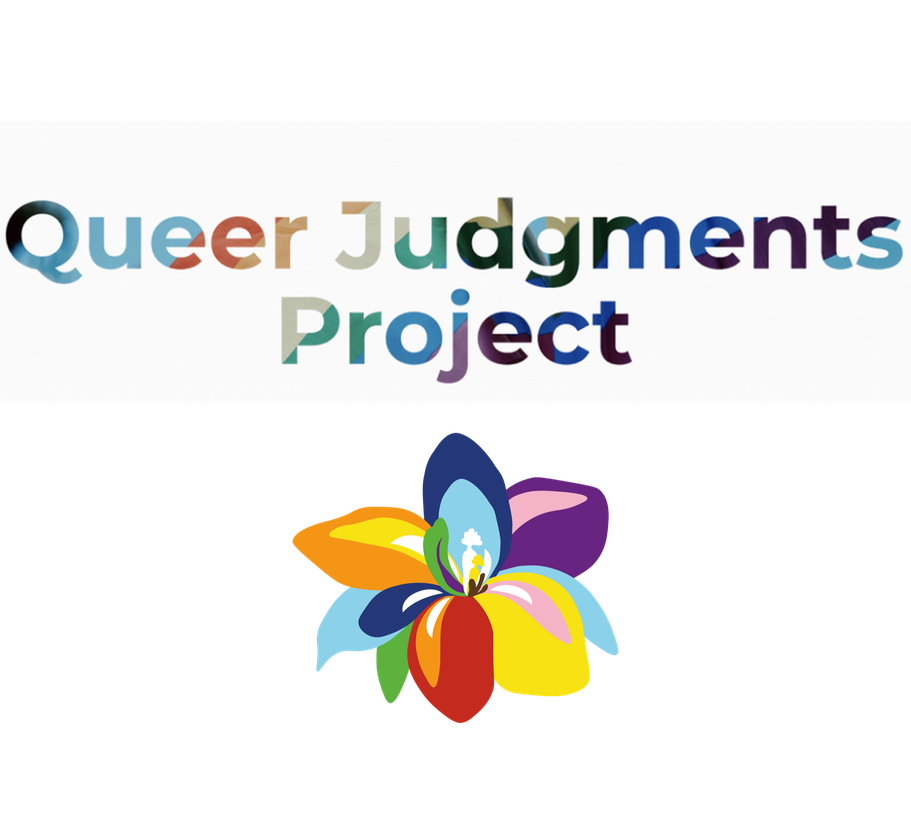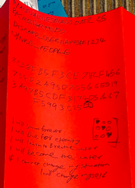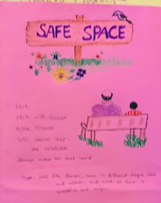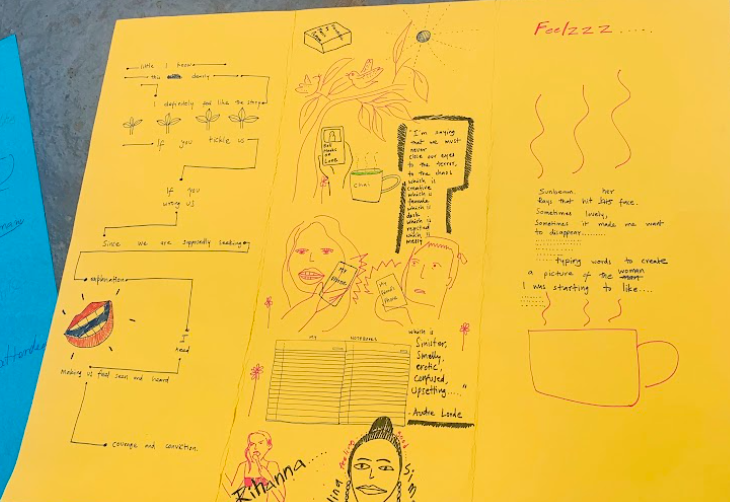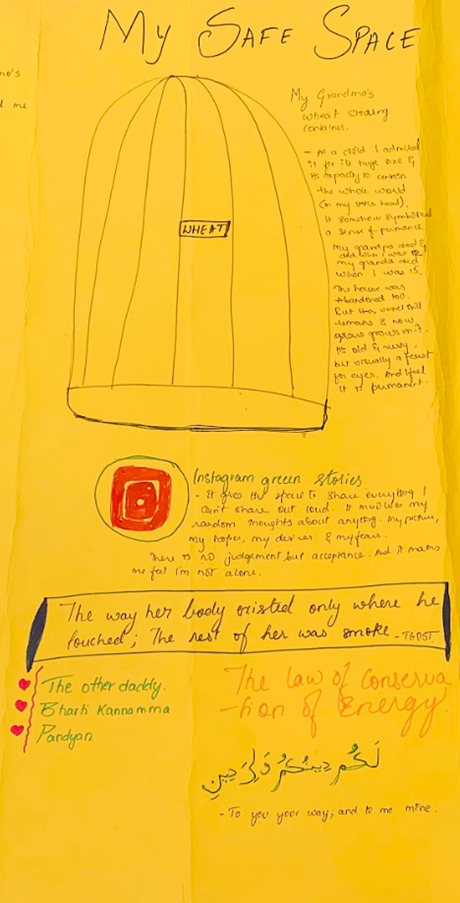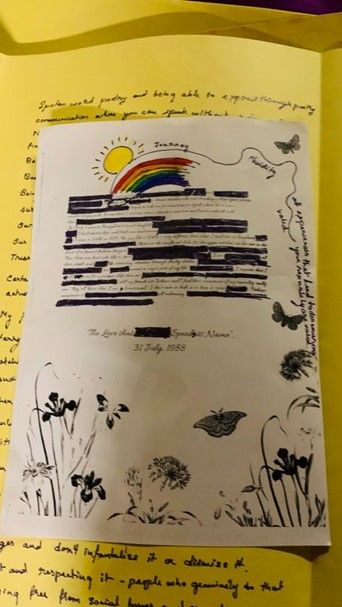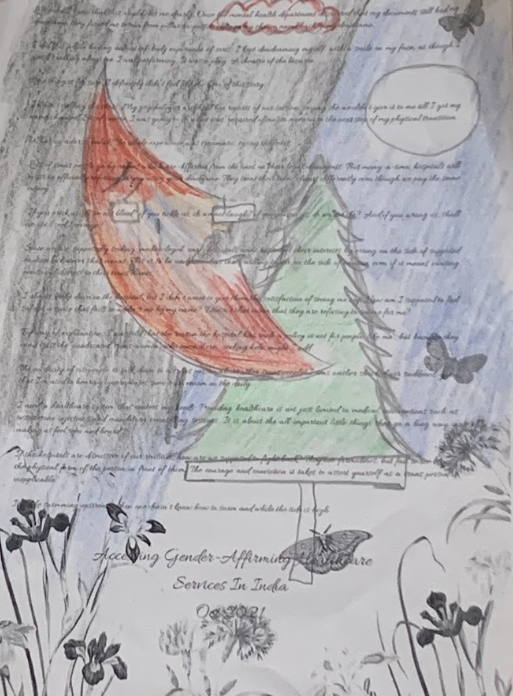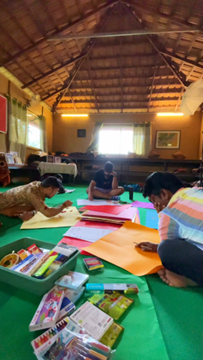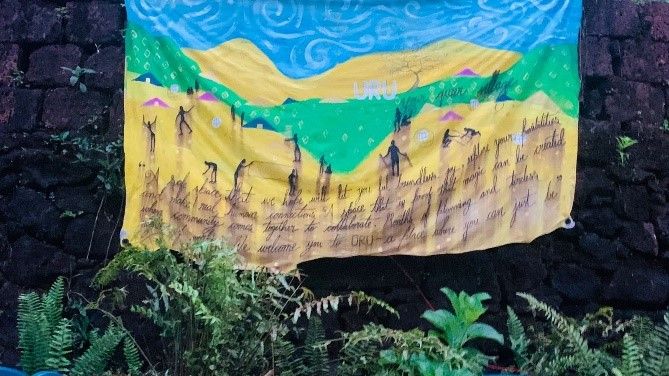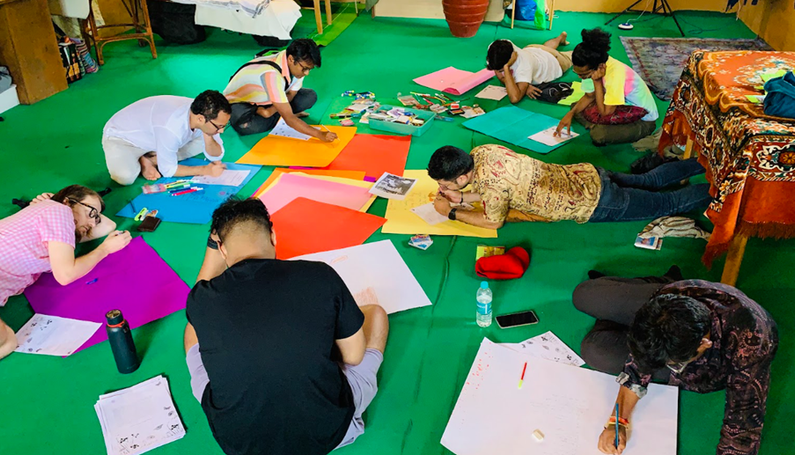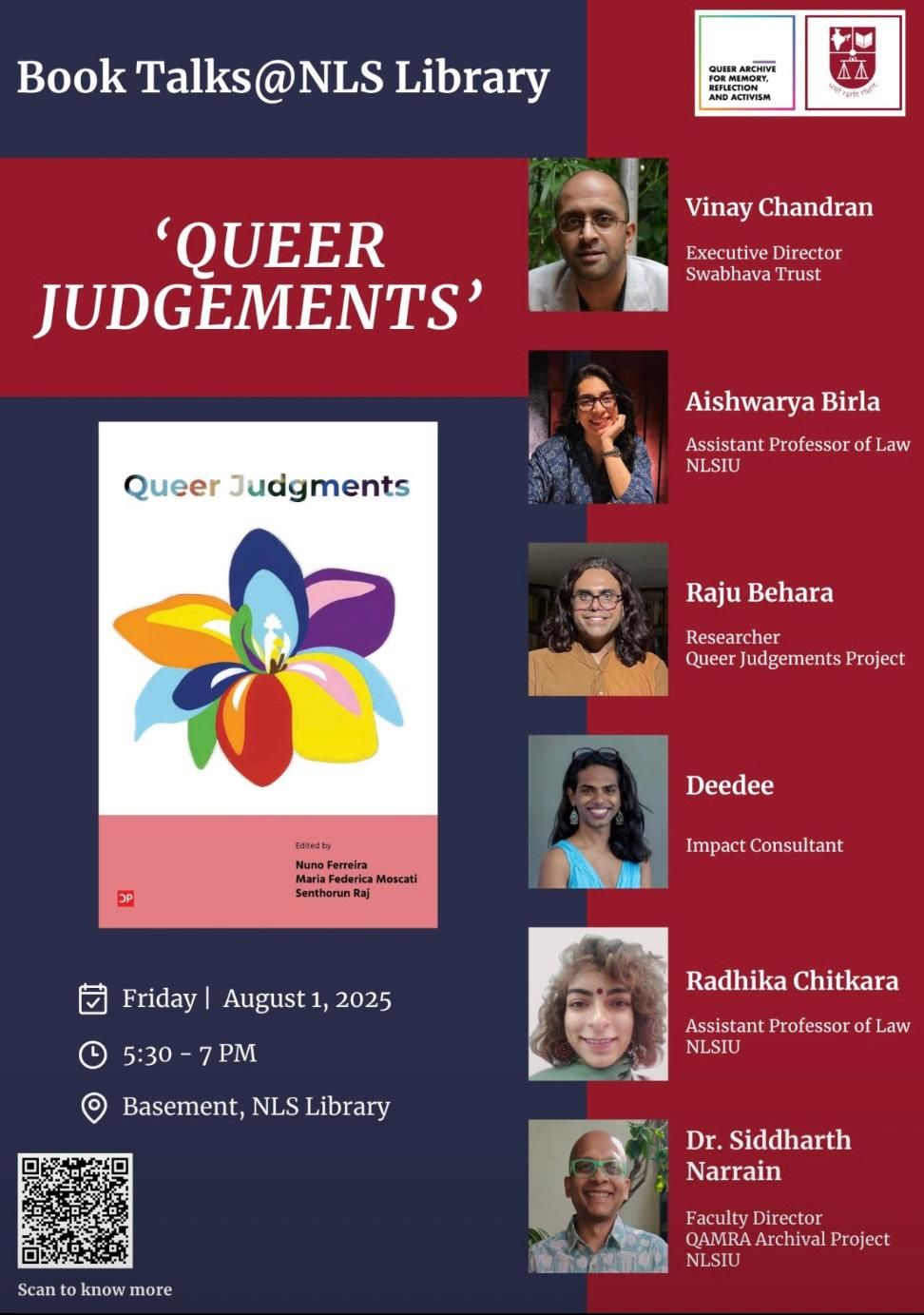
Book Talks@NLS Library: With QAMRA and Queer Judgments Project
Friday, August 1, 2025, 5:30 pm
The NLSIU’s Queer Archive for Memory Reflection and Activism (QAMRA) in collaboration with the Queer Judgments Project (QJP) are hosting a book discussion at the NLS Library on ‘Queer Judgments’.
17 June 2025, Bangalore International Centre
Queering Law Reimagining: Justice Through a Queer Lens
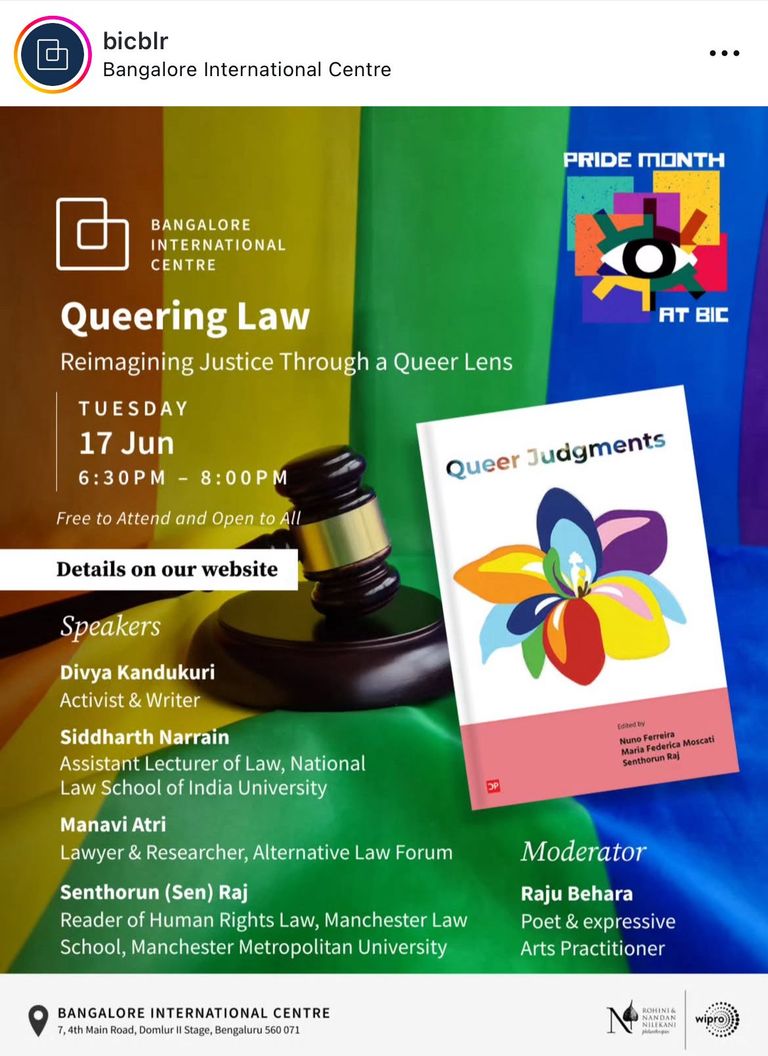
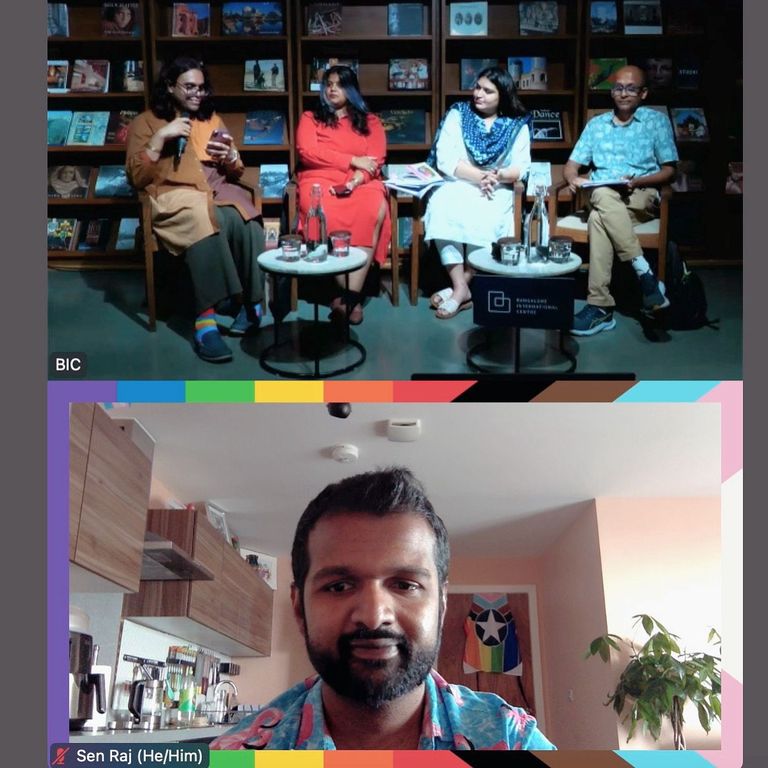
What would justice look like if it spoke in a queer voice? How might legal judgments shift if they were written through the lived experiences and realities of LGBTQIA+ individuals? In this session, we explored the bold and imaginative work of The Queer Judgments Project.
It was a pleasure to speak on a panel with Yerram Raju Behara, Divya Kanduri, Siddharth Narrain, and Manavi Atri about “Queering Law” at Bangalore International Centre’s Pride Month celebration. We had such a rich conversation about the possibilities of using law critically, hopefully, and creatively to respond to violence, harassment, and inequality. We engage as queer and trans people with law, noting its various limits and failures, in order to find more sustainable pathways for justice, community, and flourishing.
Chicago, May 2025
Law and Society Association Annual Meeting
It felt energising and hopeful to be in Chicago to launch our book, Queer Judgments, at the Law & Society Association conference. At a time where speaking and writing about (not to mention even simply being!) queer or trans generates political resentment, it’s risky for many of us to engage in queer work as part of our professional lives as legal scholars, lawyers, judges, etc. So, it was refreshing to be able to host a roundtable where we could talk honestly about these risks of exposure and to think both critically and imaginatively about the possibilities for crafting legal judgments across the world that affirm rather than disavow our lives. Thanks especially to Kay Lalor, Thomas Crofts, Andrew Gilden, and Waruguru Gaitho for sharing their fantastic contributions to the book as part of the roundtable.
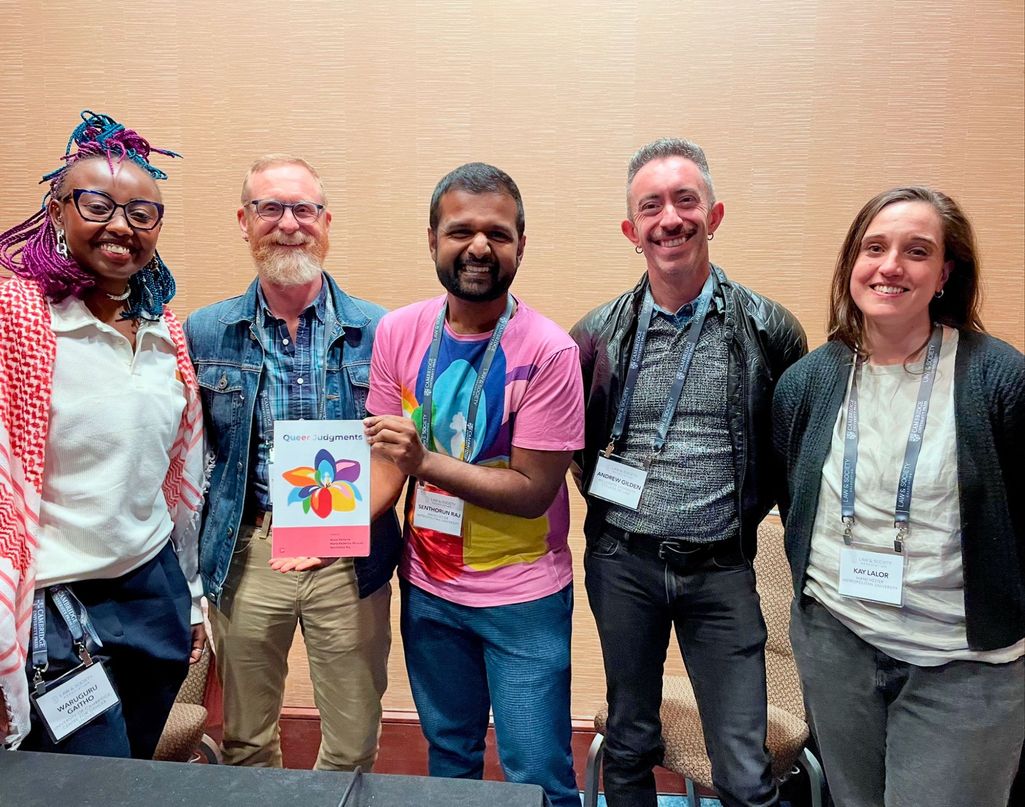
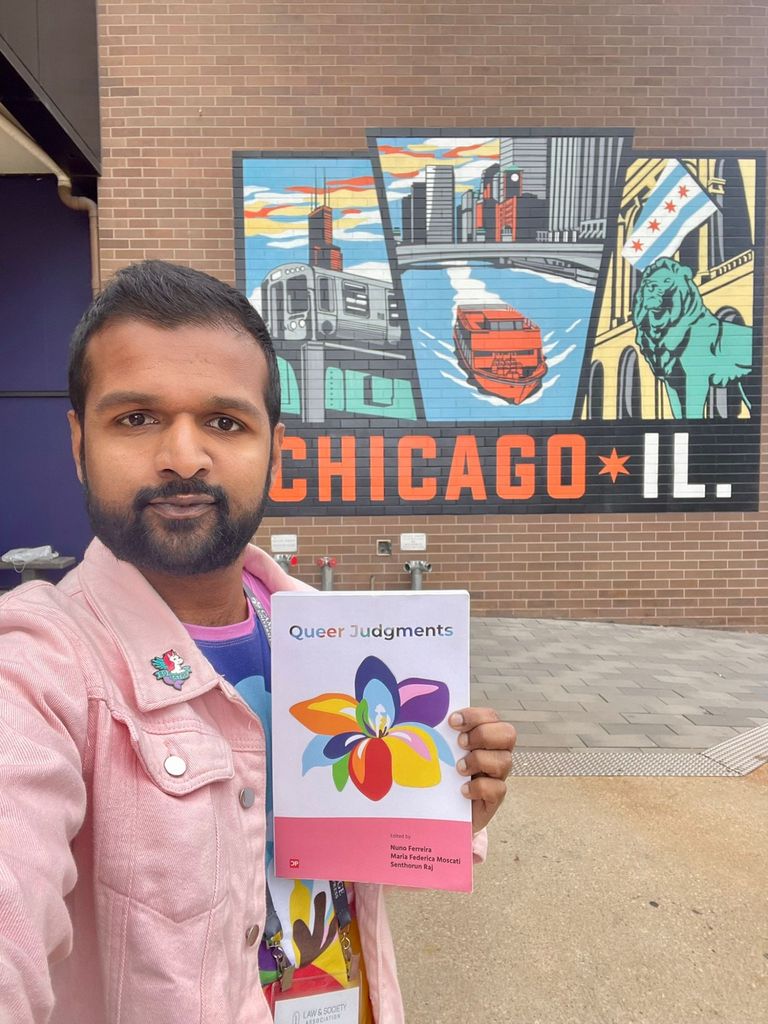
7 May 2025
Critical Judgments in Hostile Times
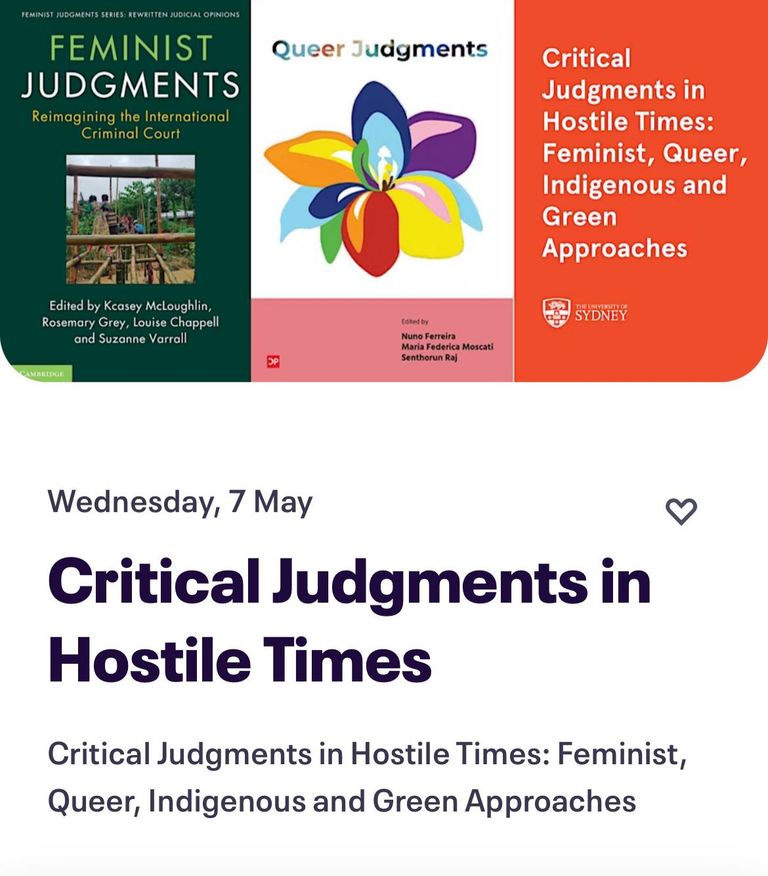
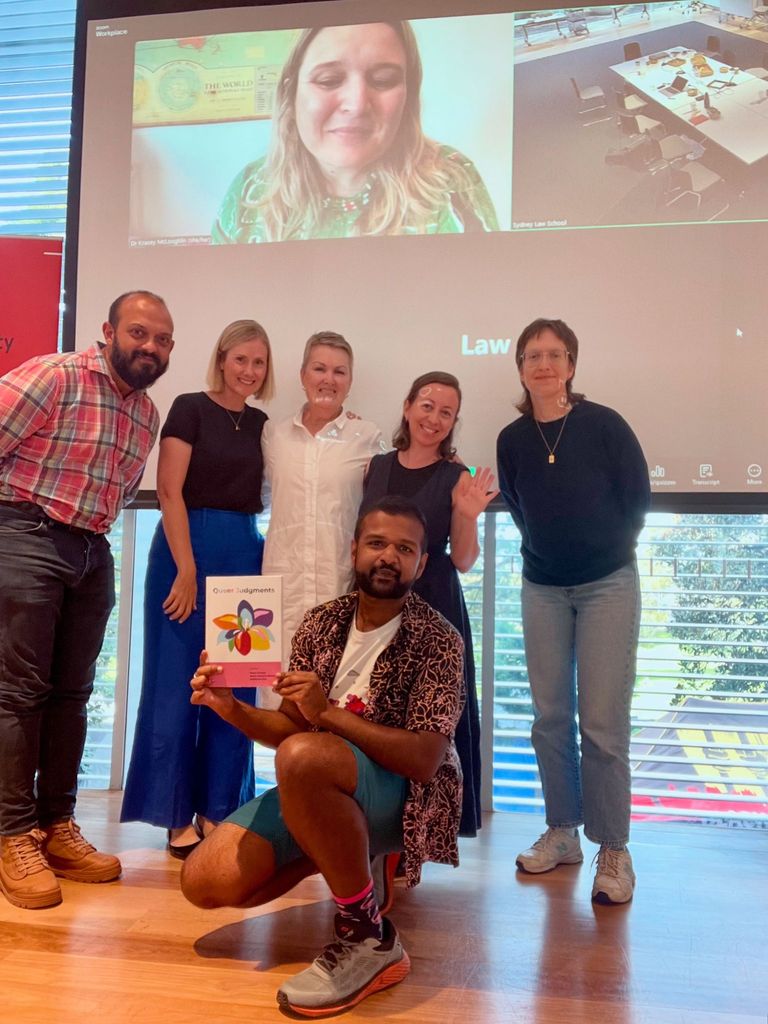
Dr Rosemary Grey (co-editor Feminist Judgments: Reimagining the International Criminal Court) and Dr Sen Raj (co-editor Queer Judgments) hosted a roundtable chat at Sydney Law School with some wonderful critical legal scholars who are engaged with the work of critical judgment writing. We communed over lunch (in our proverbial kitchen table) to reflect on our various contributions to Indigenous, Feminist, Queer, Green Judgments Projects that invite us to re-imagine and re-create legal judgments.
Working/performing/being/feeling/thinking like a judge is a creative and constraining task (which varies across jurisdictions and subdisciplines of law) especially for those of us who have our lives and communities intimately connected with the legal work we do. While there is so much to unpack from our conversations, it was heartwarming and intellectually enriching to share space with people who are dreaming up better futures/worlds for legal scholarship, teaching, practice, etc.
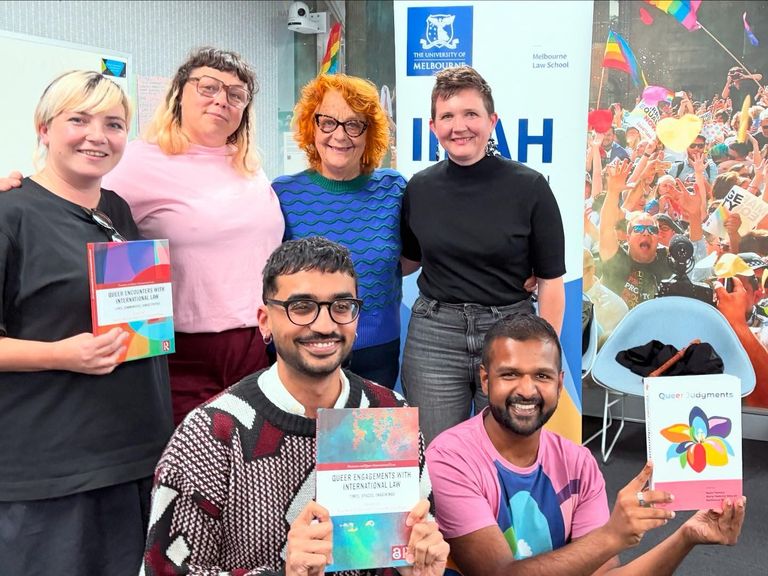
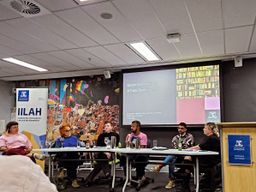
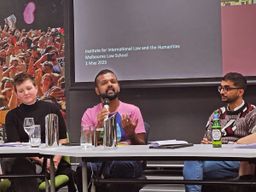
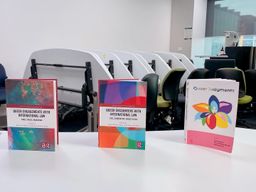
Queer Connections in Melbourne
1 May 2025, Melbourne Law School
Dr Sen Raj was in Melbourne to celebrate queer legal scholarship and to take part in a launch of a family of queer legal books. We launched our Queer Judgments collection alongside two related books, Queer Engagements with International Law: Times, Spaces, Imaginings and Queer Encounters with International Law: Lives, Communities, Subjectivities (edited by Claerwen O’Hara and Tamsin Phillipa Paige). The event was an opportunity to commune, chat, cabaret, and celebrate with our friends and colleagues about doing creative legal work with and against the law.
Queer Judgments Book Launch at SLSA
Tuesday, 15 April, 2025
The Queer Judgments book had another launch, this time at the Socio-Legal Studies Association (SLSA) Annual Conference 2025, held in Liverpool.
The launch was lead by Maria Moscati (co-editor), Alex Powell (contributor), Alex Maine (contributor), and Chris Ashford, who shared their reflections on the edited collection, seeking to draw out the new pathways it proposes for queer research and pedagogy.
More information here.
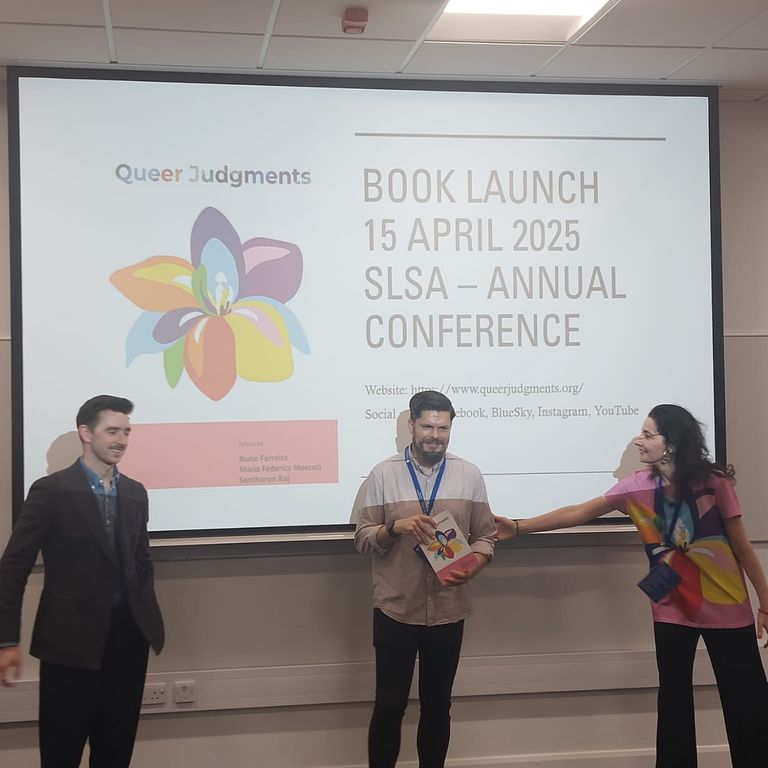
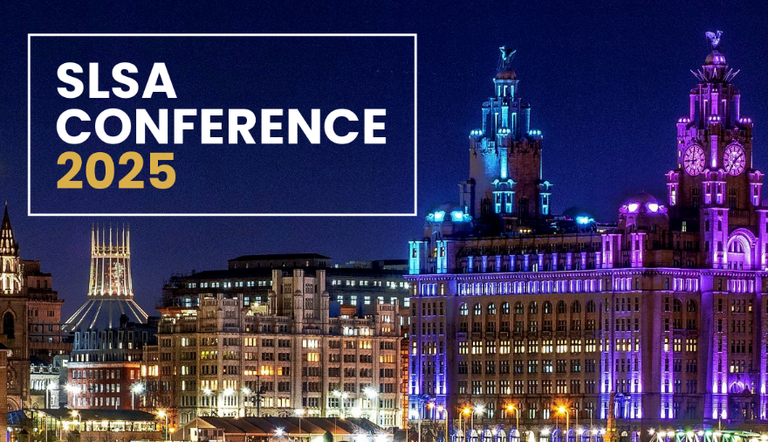
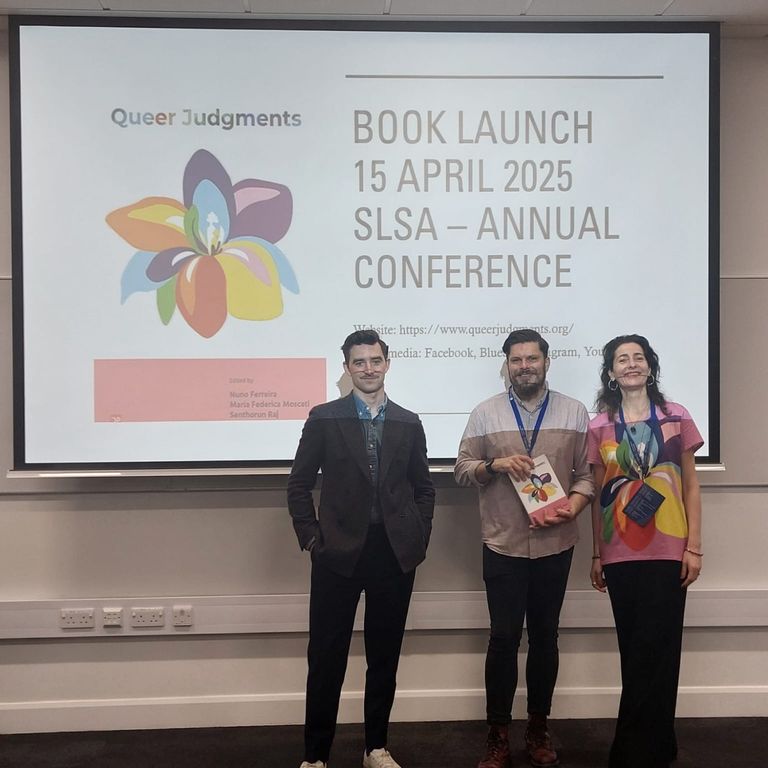
7 April 2025
Critical Judgments and Queer Law
Dr Sen Raj spoke at the University of Sydney about the Queer Judgments edited collection. In his talk, he outlined the importance of critical judgment writing and explored what a “queer” re-imagining of law might mean.
Editor Sen Raj presented on queer judgments in Sydney
Sen Raj presented at the Department of Gender and Cultural Studies at the University of Sydney seminar series about doing queer judgment writing, on 4 April 2025.
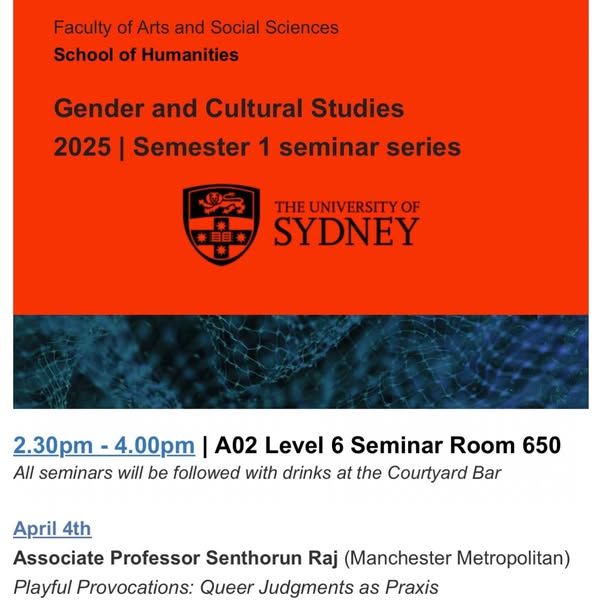
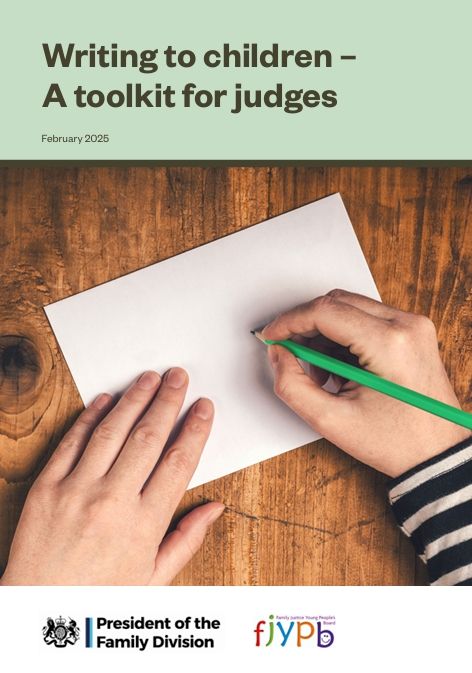
Suggesting changes to 'Writing to Children – A Toolkit for Judges', launched by the President of Family Division
Systematic erasure of LGBTIQ+ families in the justice system is recurrent. An example of institutional erasure of these families and their children comes from the UK with the 'Writing to Children – A Toolkit for Judges', that was launched by the President of the Family Division in February 2025. The toolkit provides judges with example letters to be sent to children who are involved in family law court cases.
Although welcoming the initiative, while reading the Toolkit, we noticed some incongruity between, on the one hand, the singular model of family that is represented throughout the text of the Toolkit and, on the other, the greater variety of families which exist in the UK. For instance, all examples concern children with ‘mum’ and ‘dad’, or ‘granny’ and ‘grandad’, and there is a lack reference to parents’ preferred pronouns.
Thus, in March 2025, QJP co-ordinator Maria Moscati led on a letter to President McFarlane asking that the Toolkit be revised, which was signed by several QJP contributors as well. In our letter we included some suggestions on how to use more inclusive language and the reach of the Toolkit, in line also with the Equal Treatment Bench Book.
Book launch, 14 March 2025, City University of Hong Kong
We launched our new book in Hong Kong! It was a delight to speak to an audience of legal scholars and students who were curious to know more about how they might use “queer” approaches to the areas of law they remain passionate about. Special thanks to our fabulous contributor Prof Thomas Crofts and brilliant chair Prof Mandy Fang for organising the event. And thank you to CityU School of Law for hosting us.
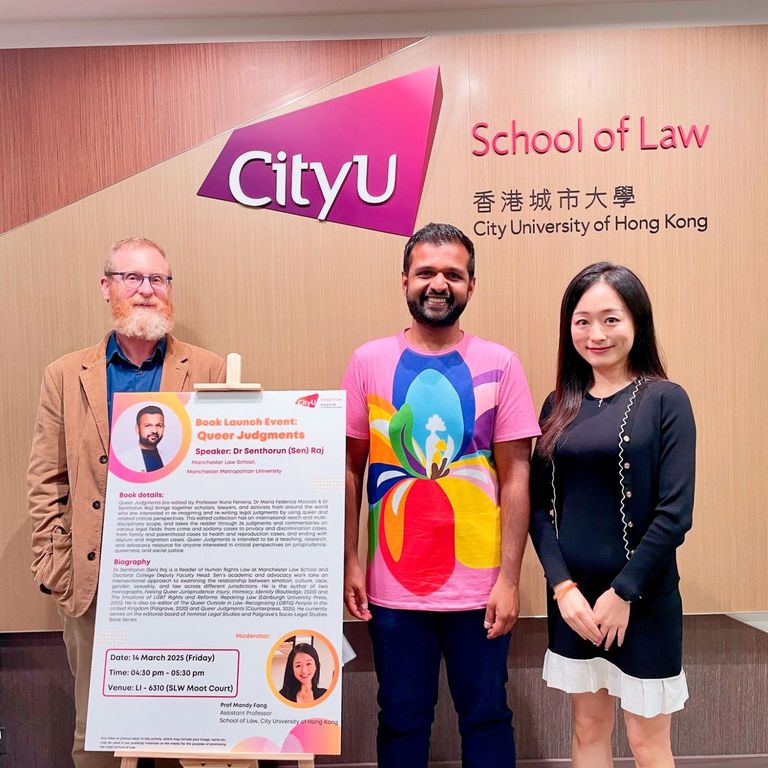
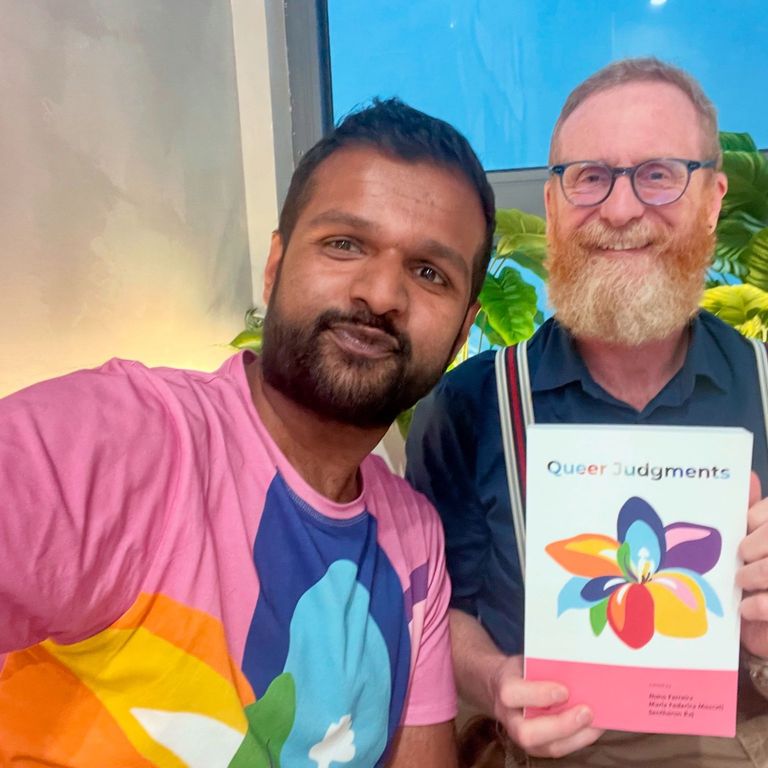

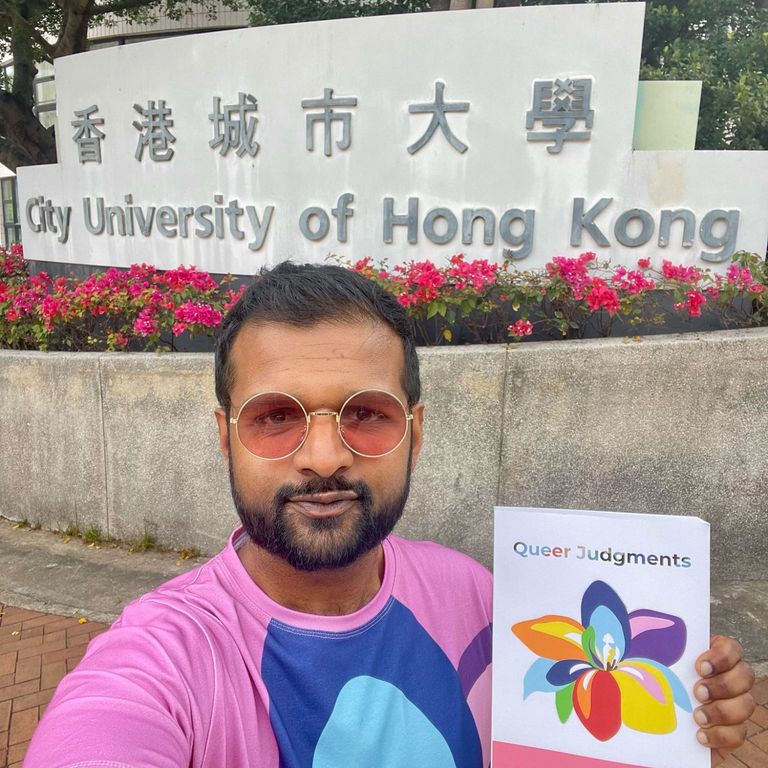
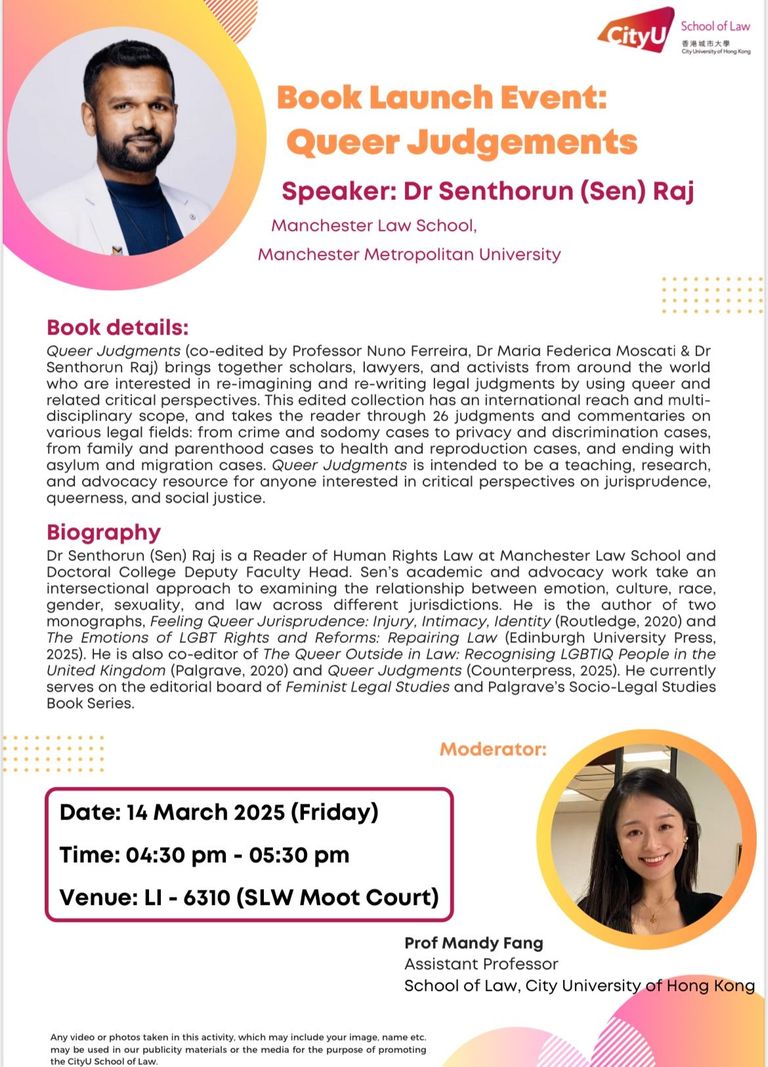
The Queer Judge goes to Palermo
February 2025
Marica Moscati talked about the QJP at the Dottorato di ricerca in Studi di Genere dell'Università degli studi di Palermo, Dipartimento di Giurisprudenza (PhD in Gender Studies at the University of Palermo, School of Law), led by Prof. Elisa Cavasino, and the doctoral students danced the Queer Judge.
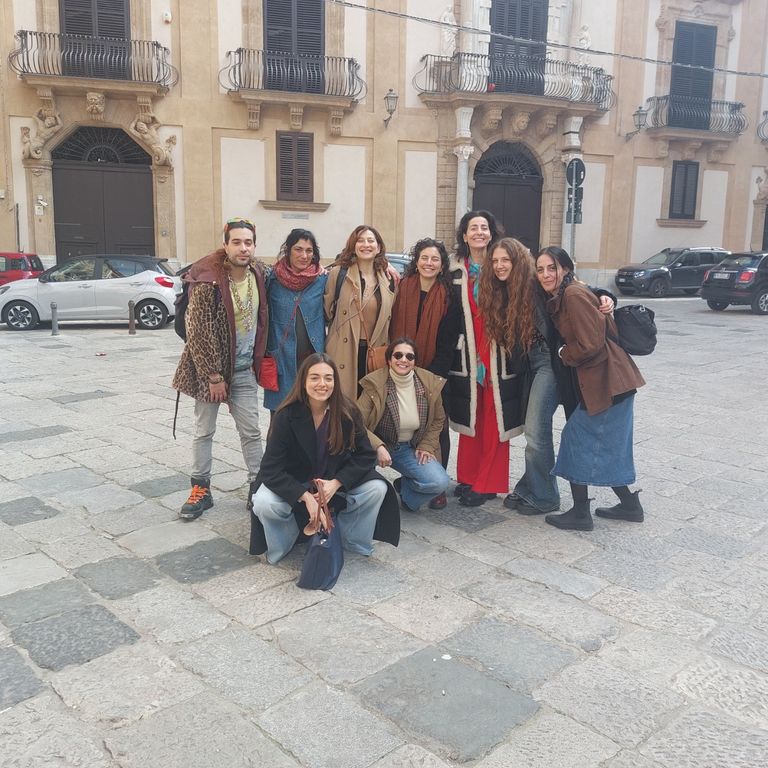
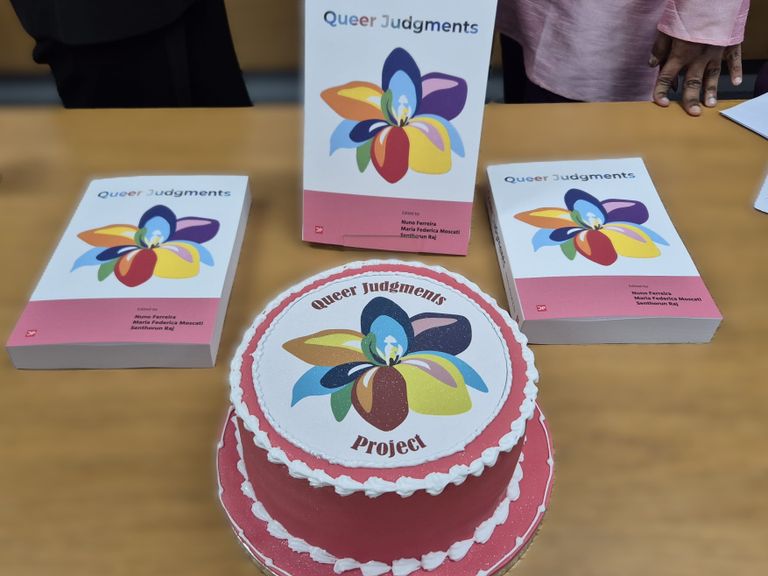
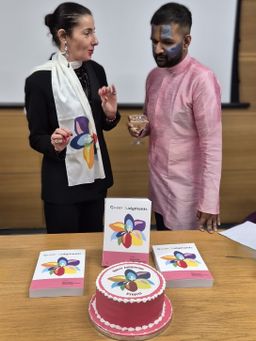
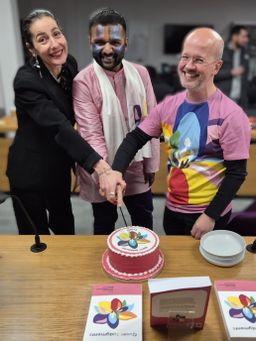
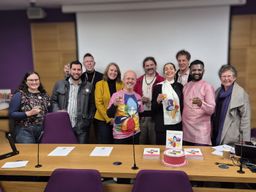
The first book launch of the QJP edited collection
This first launch was a hybrid event that took place at the University of Sussex and online on 11 February 2025.
The event was led by the editors of the collection: Nuno Ferreira (Sussex), Maria Federica Moscati (Sussex), and Senthorun Raj (MMU).
The event also included some of the contributors: Alex Powell (Oxford Brookes), Alexander Maine (City London), and Lynsey Mitchell (Strathclyde).
We thank all those who joined in person and online for taking part in the discussion and celebration - including the queer judge dance the followed!
All pictures and video reproduced and adapted with permission from Gavin Desborough, Maria Moscati and Sen Raj.
The Migration Conference 2024 (3-9 July 2024 - Mexico City, Mexico)
Carmelo Danisi and Nuno Ferreira present their contribution to the project's edited collection
Carmelo and Nuno attended the Migration Conference 2024, hosted by the Ibero University in Mexico City. Their presentation was entitled "Queering judgments: Re-writing the X, Y and Z judgment of the Court of Justice of the EU", and focused on the 2013 judgment of the Court of Justice of the European Union (CJEU) in the joined cases of X, Y and Z v. Minister voor Immigratie en Asiel. The case marked a turning point in EU asylum law concerning sexual minorities. The decision dealt with key issues such as ‘discretion reasoning’ as a basis for rejecting refugee status, the identification of a Particular Social Group (PSG) in relation to sexual orientation asylum claims, and the role of criminalization in the context of the notion of persecution of LGB (lesbian, gay and bisexual) people. Although the decision was hailed as a significant development for LGB asylum law, Carmelo and Nuno argue that the Court should have approached some aspects differently. More specifically, they assert that the Court should have adopted a different approach to the notion of Particular Social Group (PSG), and should have assessed more carefully the impact of criminalization on the risk of persecution to LGB people. Carmelo and Nuno did a queer re-writing of the original CJEU’s judgment, reimagining how a more queer and human rights appropriate judgment should read. This entails not only reframing some of the original legal analysis, but also amending some of the terminology and, crucially, reaching different conclusions in some respects. This work aims to inform not only the next wave of CJEU judgments on asylum claims based on sexual orientation and, possibly, gender identity, but also future EU asylum law reforms.
All pictures reproduced and adapted with permission from Carolina Cruz and Nuno Ferreira.
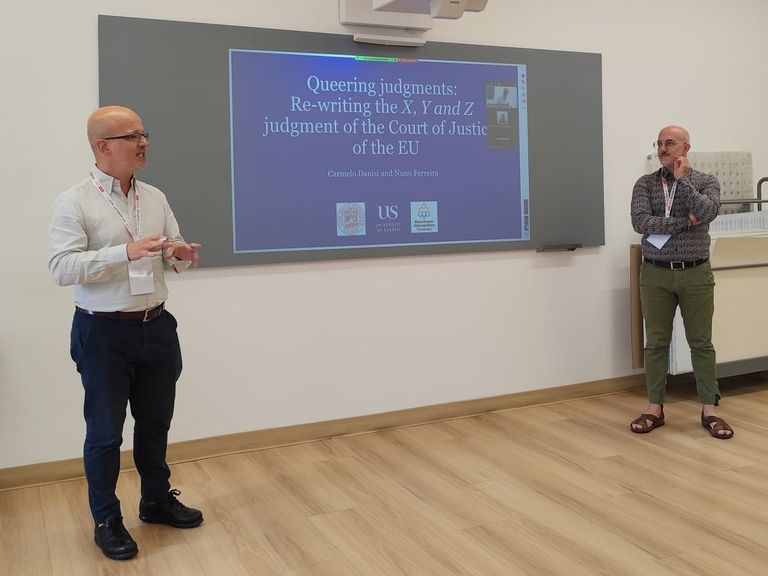
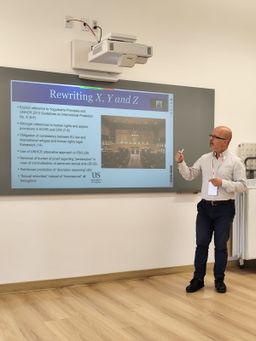
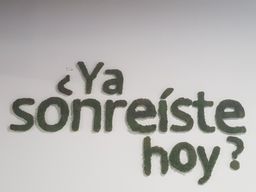
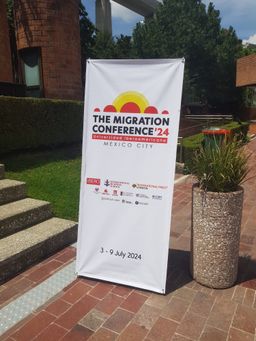
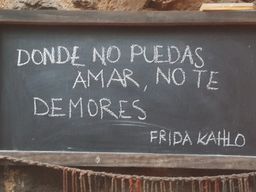
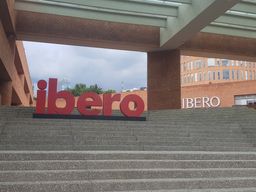
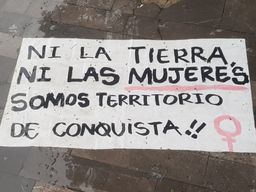
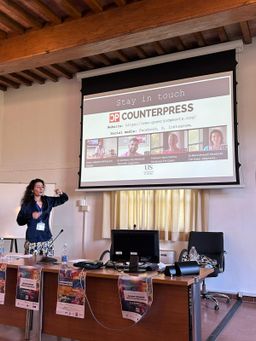
All pictures and video reproduced and adapted with permission from Matteo Winkler and Laura Guidi.
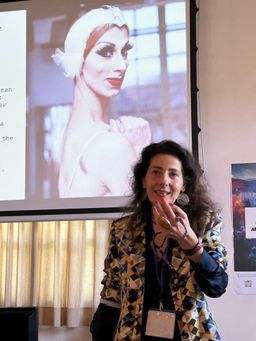
Conference Queer Kinship: Affects, Families, Bonds (9-10 April 2024, University for Foreigners of Siena)
Marica delivered a keynote speech on Dancing Queer Kinship and the Law. Her presentation discussed how to re-imagine family and kinship as legal categories, in particular in the context of disputes and conflicts involving queer people, through dance. Drawing upon the intersection between Isadora Duncan’s, Maurice Bejart’s, and Martha Graham’s approaches to dancing, legal dancing, dispute resolution discourse and queer theory, Marica queered her keynote by combining words and dance while delivering her presentation, and by involving the audience in interpretative dancing. As part of her presentation, she presented the Queer Judgments Project as a seminal example of legal dancing that – by celebrating emotions, relationships, bodies, and freedom – can enhance the rights of queer people. Marica encouraged participants to listen to the recording of Nuno's voice while reading the Queer Judge poem and asked them to improvise and translate into movements their perception of the queer judge.... six, seven, eight, everyone can dance!
QJP panel at SLSA 2024
QJP co-ordinators Nuno Ferreira and Maria Moscati co-chaired a panel discussion at the Socio-legal Studies Association annual conference 2024, held at the University of Portsmouth, 26-28 March 2024 (https://www.slsa2024.co.uk/). The panel explored the work carried out so far in the project. Panel contributors introduced the project's aims, activities, methods and outputs, and presented their contributions to the forthcoming edited collection of re-written queer judgments (Counterpress, 2024). Speakers covered examples from international, European and domestic (India, Kenya and UK) jurisdictions, relating to topics such as same-sex marriage, air traffic noise pollution, asylum on grounds of sexual orientation, and the criminalization of sexual acts between consenting adult queer persons.
Panellists:
Rafael Carrano Lelis (presenting) and Paula Gerber – ‘Joslin et al. v. New Zealand (United Nations Human Rights Committee, 2002): Queering the UN Human Rights Committee’
Kay Lalor – ‘Hatton v the United Kingdom (ECtHR, 2003): Queering Environmental Protections’
Alex Powell – ‘HJ (Iran) & HT (Cameroon) (UK, 2010): Queer Reflections on a Landmark Case on the Rights of LGBT+ Refugees’
Yerram Raju Behara (presenting), Malhar Satav and Sal, ‘Queering Section-377 Litigations (India, 2018): Drawing Marginalized Queer-Trans Narratives and Perspectives into the Supreme Court & High Court Verdicts’ [online]
Waruguru Gaitho, ‘Petition 150 & 234 of 2016 (consolidated) (Kenya, 2019): The Potent Possibilities of Dissent – Towards a Renegade Judicial Praxis’ [online]
Poetry and Dance of The Queer Judge
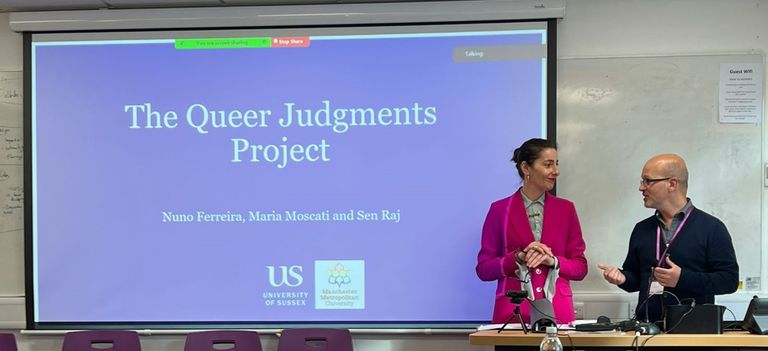
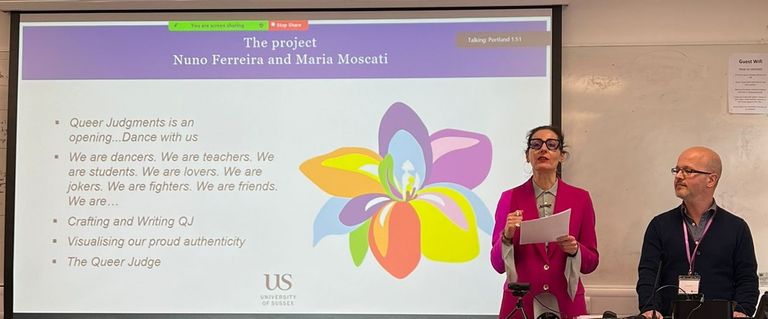
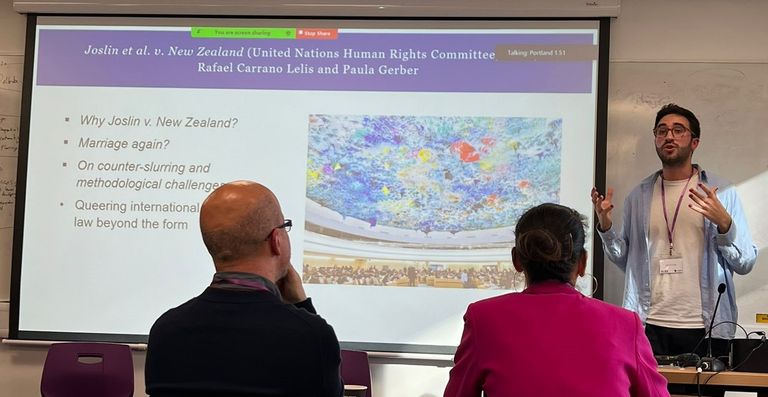
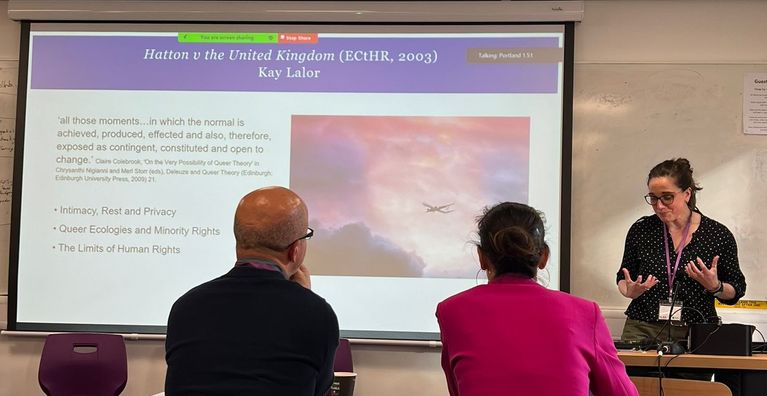
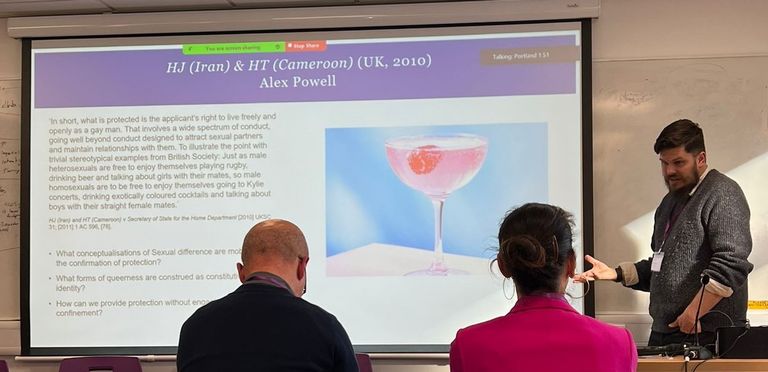
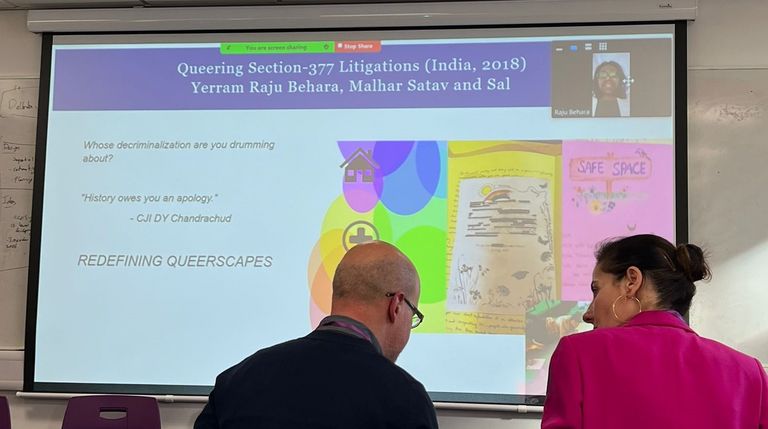
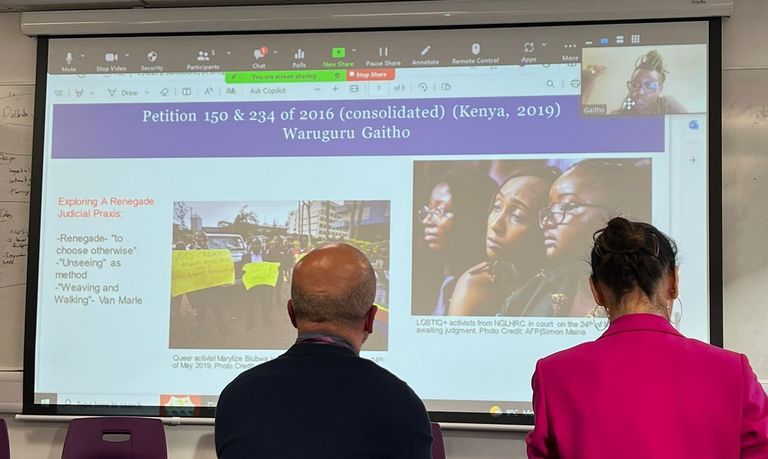
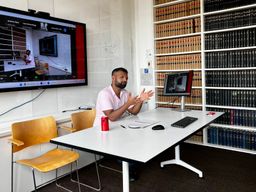
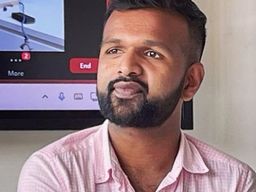
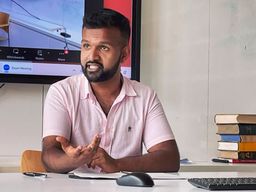
Dr Sen Raj was a George Flannery Visiting Fellow at Sydney Law School in 2024
As part of his fellowship, Dr Raj shared highlights from the Queer Judgments Project. He discussed the creative, ethical, critical, and political practices of queer judgment writing and encouraged others to get involved in the project. Sen offered a talk at the Sydney Institute of Criminology.
"Over the past three years, I have been co-leading (with Professor Nuno Ferreira and Dr Maria Moscati) a collaboration of scholars, lawyers, and activists around the world called the Queer Judgments Project. This project invites scholars, activists, and legal practitioners to re-imagine and re-create judgments relating to minoritised, non-normative sexual and gendered communities. Building on critical judgments initiatives like Feminist Judgments: From Theory to Practice, this project plays with legal form and legal norms to shape judgments that prioritise the safety, freedom, and wellbeing of lesbian, gay, bisexual, transgender, intersex, queer, and asexual (LGBTIQA) people. In this seminar, I will discuss the process of critical judgment writing using the example of R v Green (a case infamous for legitimising the ‘homosexual advance defence’ in NSW). While that case has been the subject of much academic and community criticism for excusing lethal violence against gay men and has since been superseded by statutory reform, my re-written judgment draws out the different expressions of fear, anxiety, and disgust in that case to jurisprudentially rethink questions of sexual harm, institutionalised homophobia, and criminal responsibility. The work of critical judgment writing from a ‘queer’ perspective is important for legal academics and practitioners who are engaging with questions of social justice and are interested in alternative ways of litigating, judging, and reforming law."
Redefining Queerscapes - Rewriting Queerscapes through Poetry
QJP contributor Raju Behara has led on a social action project that has included panel discussions and workshops that have generated poems and other forms of art. Here you can find some of the outcomes of this project. Their journey through The YP Foundation’s EQUAL fellowship can be accessed here. If you'd like to find out more about this project, please contact Raju on mphrajubehara@gmail.com.
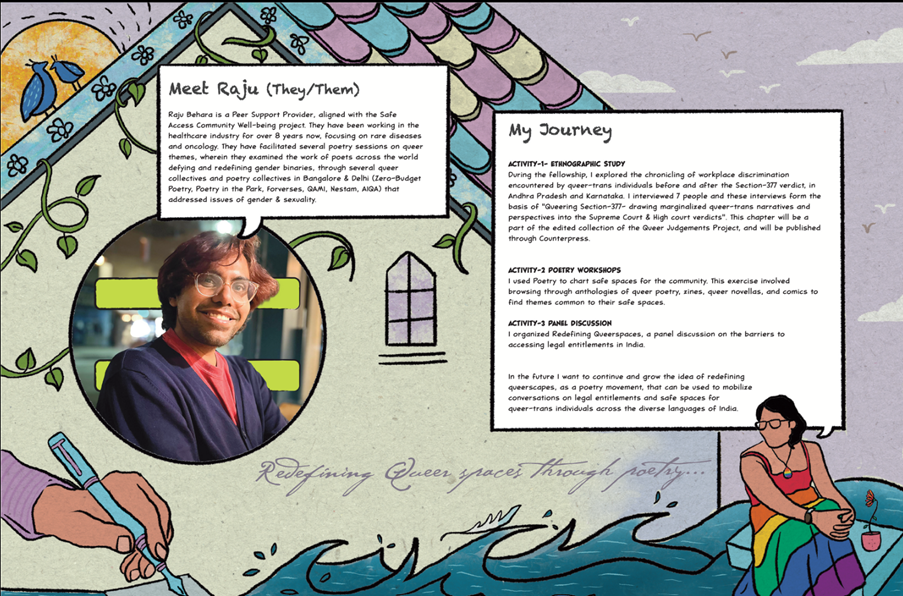
The first set of poetry workshops were conducted at ŪRU - a Queer Village, a queer camping festival conceptualised and produced by Prasanna Pichai in partnership with Out & About, at Wayanad Kerala
The second set of poetry workshops were conducted as a Pre-Pride event, during Namma Pride 2022. The poster is below:
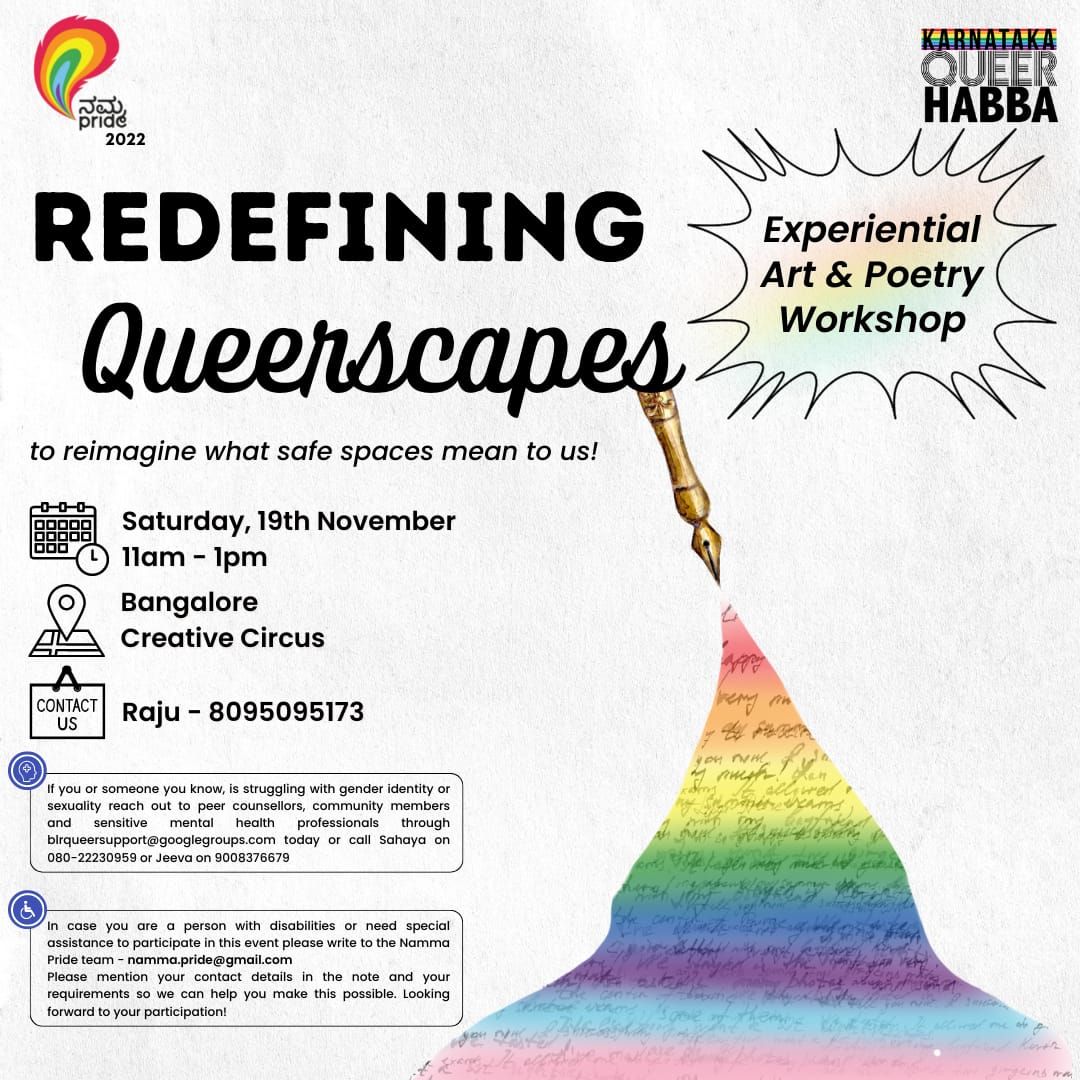
Activity 1 of the workshops: What do safe spaces mean to you as a queer-trans individual? Participants of the workshop were encouraged to explore what safe spaces means to them in the first set of activities, which involved free form writing and sketching. These are some of the artistic outputs:
Activity 2 of the workshops: Using Blackout and Erasure poetry to redefine queer-trans lived experiences in housing, healthcare and workplaces, pre and post Section-377 Litigations
The letters and other texts used by the workshop participants in the project for blackout and erasure poetry can be found here:*
- Adam Harry (Interviewed text from Gaysi)
- How Queer Women Navigate Heterosexual Public Spaces (Essays from Gaysi)
- Army officer HIV Advocacy post-377 (Essays from Gaysi)
- Healthcare Trans post-377 (Essays from Gaysi)
- Housing pre-377 (Essays from Gaysi)
- Till death do us part (Essays from Less than Gay)
- The Love that Dare not Speak its Name (Essays from Less than Gay)
- Trikone (Essays from Less than Gay)
- Together Always (Essays from Less than Gay)
- On being scared of myself (Essays from Less than Gay)
- Don't want Tokenistic Representation (Essays from Gaysi)
- Accessing Gender-Affirming Healthcare in India (Essays from Gaysi)
- Exclusion in Inclusion: Trans Exclusion in Indian Corporate Culture (Essays from Gaysi)
*The project utilised first-person narratives from publicly available sources for this exercise, which includes:
Articles and Poems sourced from Gaysi This platform is a space for expression and dialogue about queer sensibilities in South Asia. A place for sharing thoughts, activism, dreams, theories, confessions, and desires.
Essays sourced from Less than Gay: A citizen's report on the status of homosexuality in India, developed by AIDS Bhedbav Virodhi Andolan.
Some of the artistic outputs generated through erasure are below:
Activity 3 of the workshops: Using found poetry to reimagine what safe spaces to us as queer-trans individuals, in the backdrop of the imagery and texts accessed in activity 2, and through the lens of safe spaces, defined in activity 1. Some of the poems generated in this activity are below.
Poems from ŪRU workshops:
Poem 1 Loving my Job
How can I love my job?
Sounds frantic, nothing heretic,
Setting sun floods the west faced boardroom,
Long table chairs around
No damsel or knight to be found,
Whence cometh my love for this.
Circular rectangle?
Country Director & Intern.
Same table, same circle.
Floor complete with grassroot changemakers &
Ceiling with upper echelons of policy makers
Or is it the other way around.?
We talk for hours about
Dalits dying in sewers &
Trans people from AIDS
Teacher absenteeism,
like justice in the lives of the oppressed.
Power by, Hunger, Trauma
Beyond number
What a sad affair?
We win subtly and fail gloriously,
Broken people and broken systems
Sitting on broken chairs,
Yet I'm in love,
With the power, and
Nowhere to take cover.
A place as strong as bullets & safe as pillows,
The fears, the tears,
And listening ears.
Power in empathy,
They love me out of my misery.
Poems from Namma Pride workshops:
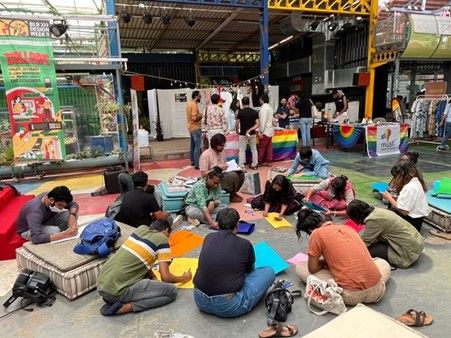
Poem 1
I feel like crying
Muffled sounds filter through me,
Stubbornly resisting
She, trying to thrust me out
We stain against each other
Pain is non-linear
Love is a chaotic system
Multi variable, insane
A vital gift
Fear (t)
Fear (love, t)
Fear (pain, love, t)
Fucking Frightening
Poem 2
Pride with a girl
Pride with a boy
The hour gets dark.
With Pride I toy
I try a bit hard
Right from the start
But as dust falls
I collapse as cards.
Flowers & Prayers,
And pout up & sex
Never seen summer
With winter I`m struck.
Don’t with hesitation, Ma
This constant agitation, Ma
Into the galaxy of endless perhaps,
Trending as stars, not gonna relapse.
My identity is informal ma,
As resistant & moral ma
Sorry I couldn't be more normal ma
Sorry I couldn't be more normal ma
Panel Discussion
This was the final activity of the pilot social action project which included conversations centred around the legal entitlements and barriers to access them with NGOs and Policy Think-tanks.
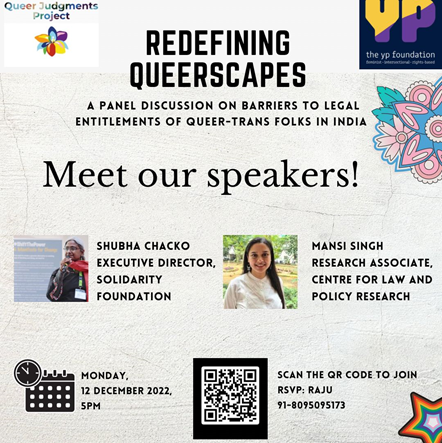
Celebrating our first Queer Judgments Project presentation - March 2022
Flick Adams and Dr Fabienne Emmerich of Keele University presented on "Foreclosing Possibilities of Queer Love, Relations of Care, and Solidarity: Deconstructing Hopkins v Sodexo and the Protection of the Heteronormative Institutional Order".
You can address any queries to f.e.adams@keele.ac.uk and f.emmerich@keele.ac.uk
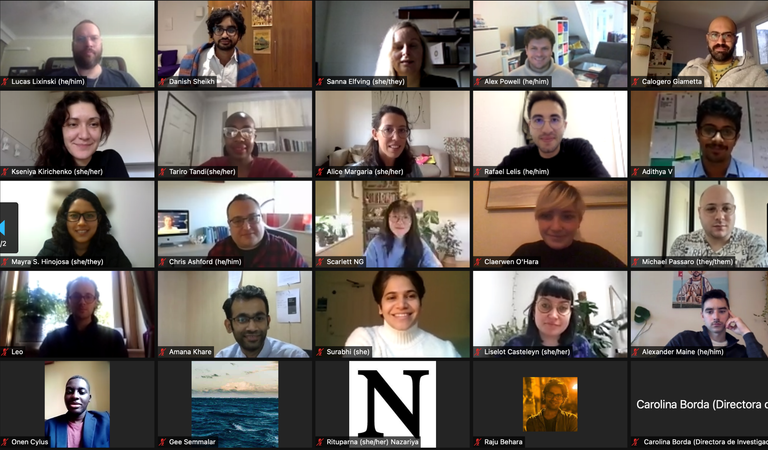
Focusing on the Edited Collection, February 2022
The Queer Judgments Project held two workshops to discuss project priorities, with the focus on creating an edited collection. We now have over 70 contributors, each focusing on re-writing and analyzing a different legal judgment pertaining to the lives of queer individuals from around the world.
Scoping workshops, October 2021
We held further workshops in October 2021 to discuss the project outputs and goals. We established a list of official contributors and honed in on written and creative outputs of the project.
At these workshops, we also addressed several theoretical questions:
1. How does legality reflect colonial power structures?
2. What kind of queer subjects does the law imagine?
3. Are we seeking legality?
4. What are the consequences of being stigmatised?
5. In what ways does the law think about the queer subject and how queer subjects position themselves in relation to the law?
We also addressed some methodological questions:
1.How deep does our knowledge of the judgment have to be?
2.How can evidence be queered to become accessible?
3.How can we queer the files that judges have access to?
At these workshops, fellow queer scholars and activists spoke passionately about issues ranging from reimagining the decriminalisation of homosexuality to making room for the experiences of LGBTIQ+ people who seek asylum, to rethinking modes of legal gender recognition, to dismantling carceral systems harming socially marginalised populations, etc. The various topics discussed spanned jurisdictions, court hierarchies, and subdisciplines of law.
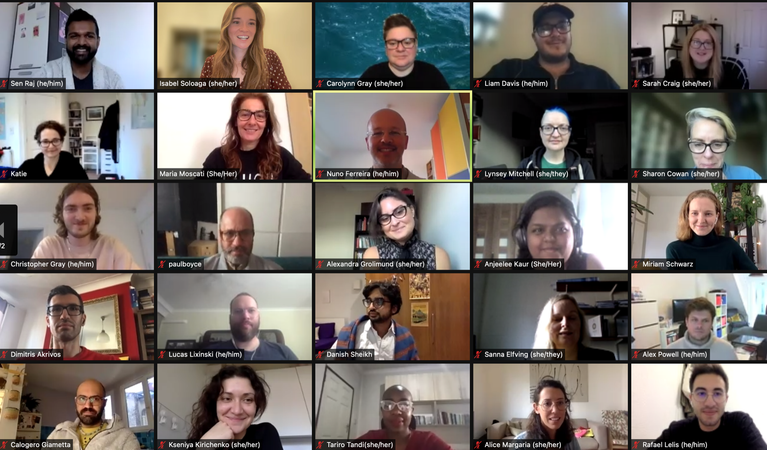
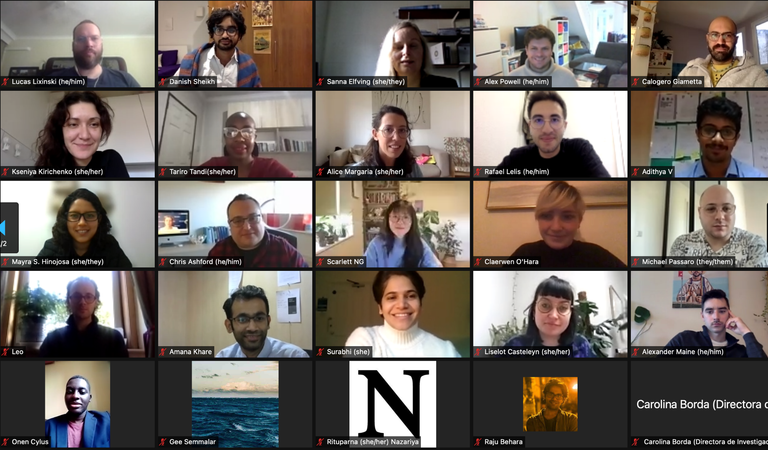
Scoping workshops, July 2021
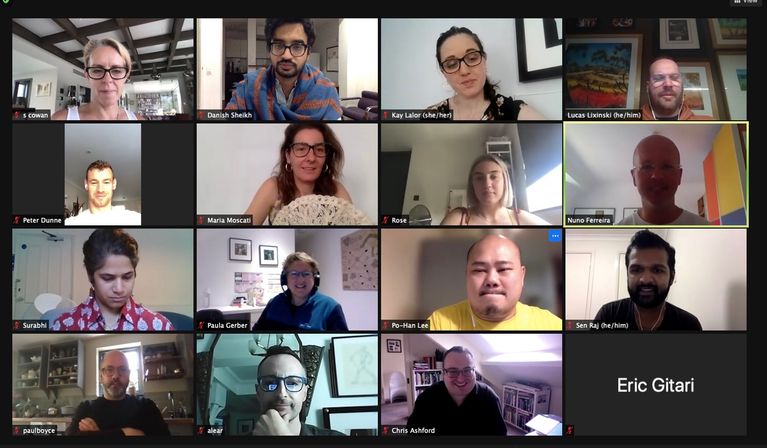
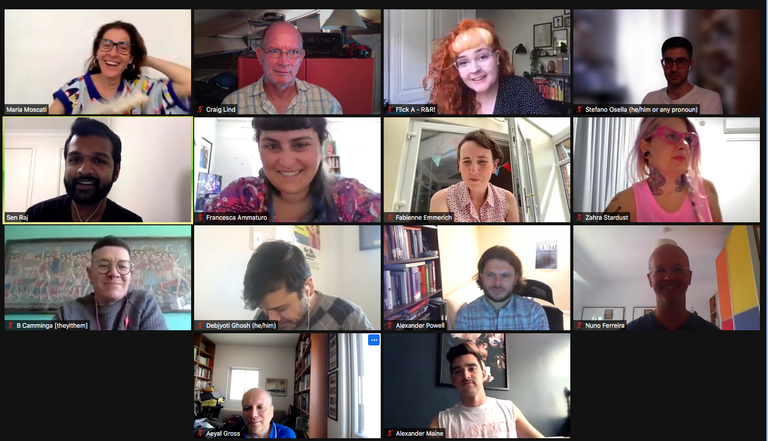
In July 2021, we held two scoping workshops to bring together queer scholars and activists to reflect on jurisprudential challenges related to SOGIESC matters. In framing this conversation, we were not tied to specific SOGIESC-related rights issues or subdisciplines of law or styles of jurisprudence. We wanted to create an open space which gave people the opportunity to identify some of the pressing legal, scholarly, and activist concerns relating to SOGIESC-related rights and to work out what a ‘queer judgments project’ might offer to our collective work to improve SOGIESC-related rights globally. To that end, we asked those interested in the conversation to reflect on the following questions:
1. How might queer judgments be relevant to your work (as a lawyer, scholar, activist, etc)?
2. What jurisdictional andjurisprudential scope should the project have?
3. What theoretical perspectives should inform such a project?
4. What form should “queer judgments” take?
5. What (scholarly, political, artistic) outputs could we develop together?
6. How might we resource this work?
We had over 30 people from different parts of the world join the initial (virtual) dinner-table conversation to discuss these questions. The discussions that took place online were enormously rich.
What became clear from the conversation is that the Queer Judgments Project would not just be a “typical” academic edited collection. Rather, people were interested inoffering critical commentaries through writing and podcasts, re-writing judgments, experimenting with legal form, queering legal interventions by theatricalising them or turning them into comics, and collaborating with activists and artists to rethink the limits and possibilities of law when it comes to SOGIESC issues or the lives of LGBTIQ+ people.
